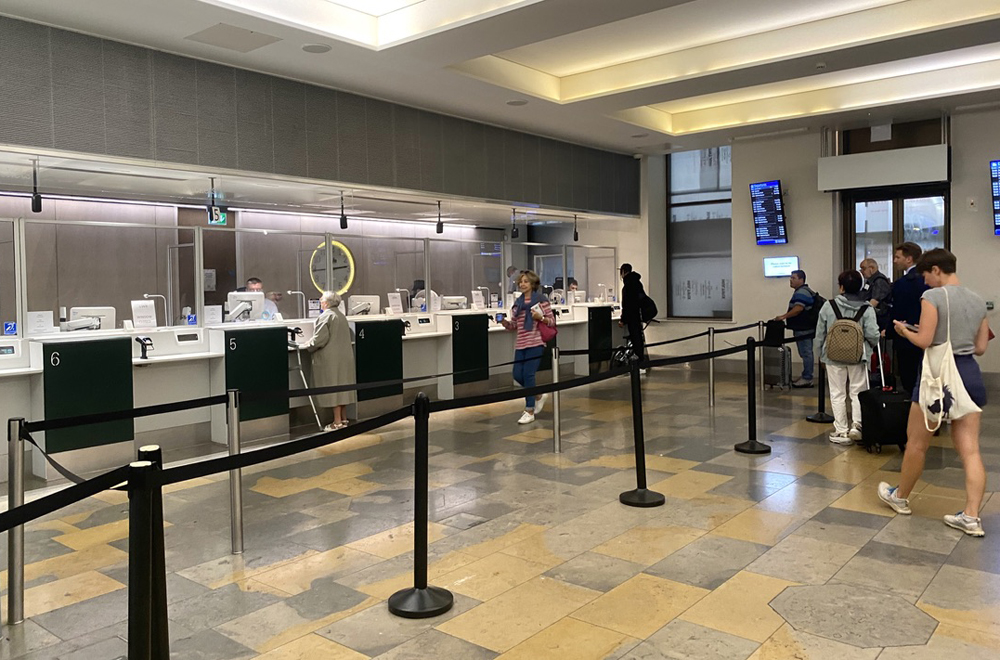
LONDON — British government proposals to potentially close ticket counters at all railway stations in England have led to widespread opposition, with a nationwide consultation exercise extended to Sept. 1 following protests and threats of legal action.
The opposition has come from most politicians, trades unions, and — unusually — almost the entire news media, including outlets normally supportive of the current government.
The proposal is vaguely worded, with no details which office might be shut; despite this, it was put out to public consultation this month. It applies only in England, as passenger rail policy is handled directly by the devolved governments in Scotland and Wales, where no similar proposals have been made.
There are currently 1,180 stations in England with ticket offices, most open all day but some only open for a few hours. Another 802 already don’t have ticket offices.
Over 100,000 responses to the consultation were received within the first week or so. That number is likely to be much higher when the final results are released, probably in September, following the month-long extension of the consultation announced July 26. Based on public reaction so far, it is likely the vast majority of respondents will oppose the proposed change.
The proposal to shut most or all ticket offices has been fronted by the various contracted passenger train operators. However, it is clear the policy (as with many other details of the current UK rail system) is driven directly by the government — in particular the Treasury Department, seeking ways to reduce rail expenditures. The government argues that removing ticket office clerks from their offices will enable them to act in more of a station agent/customer service role.
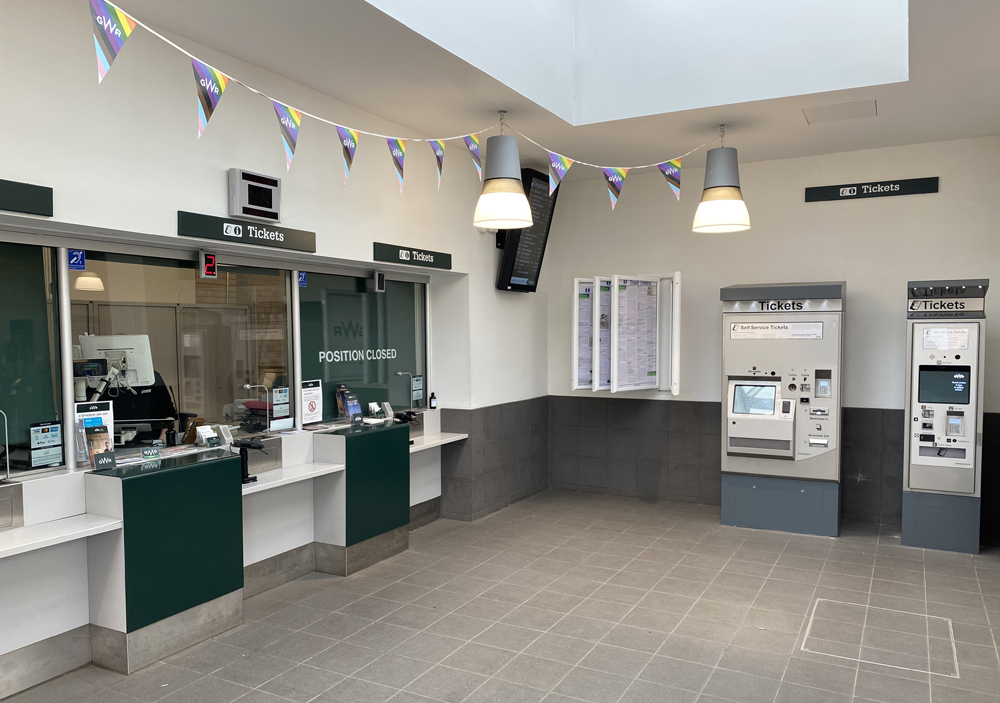
The government, and (publicly at least) the operating companies argue most passengers don’t use ticket counters, and that 99% of tickets can be bought at Ticket Vending Machines (TVMs) or online. However, in an industry serving around 30 million passenger journeys a week, 1% is still potentially 16 million tickets each year that cannot be bought elsewhere. And the train companies admit that 12% of all tickets, or around 60 million, are currently bought at ticket offices. Privately, senior managers at private rail operators regard the proposal as unhelpful or worse, but as they are reliant on government-awarded contracts cannot say this publicly.
Even for passengers able to book online or using a TVM there are currently major purchase limitations. Some TVMs do not accept cash. Advance booking, which offer better fare values, is often possible a few weeks in advance, but in many cases, TVMs will only sell tickets for immediate use, often at a higher fare. And seat or sleeper reservations are not possible at all on most TVMs.
The government suggests the experience of London Underground, the London subway, proves ticket offices are antiquated. Its ticket offices have been shut in the last decade, with employees transferred to customer service jobs. However, the London system basically has only 10 zonal fares, and its fully automated system accepts bank or credit cards, with the card acting as a passenger’s ticket and a daily maximum fare built into its algorithms. On the national rail network, there are literally tens of thousands of fares, no automated system, and no maximum prices.
The proposed ticket-office closures have come before any attempt to simplify rail fares — an effort promised by the government for several years — which would remove much of the complexity that leads people to use ticket offices in the first place. This has led to widespread criticism from groups representing older and disabled people, as they believe they will be disproportionately impacted.
Rules for ticket-office closures were set out in the legislation that privatised Britain’s railways in the 1990s. Then, over 80% of tickets were bought in person from a station, and the legislation aimed to prevent new private companies from closing ticket offices. This means there is significant scope for legal challenge to the current plans, and a combination of some of England’s big-city mayors plus groups representing the disabled and elderly have threatened multiple legal cases. This led to the extension of consultation — and will likely lead to years of case-by-case litigation unless plans change.
Other European countries, such as Sweden and Norway, have closed all or most ticket offices but retained complicated fare systems or require reservations for some trains. Experience in those countries shows access for many passengers to tickets or reservations is very difficult, and for those without smartphones almost impossible.
Widespread cost cutting
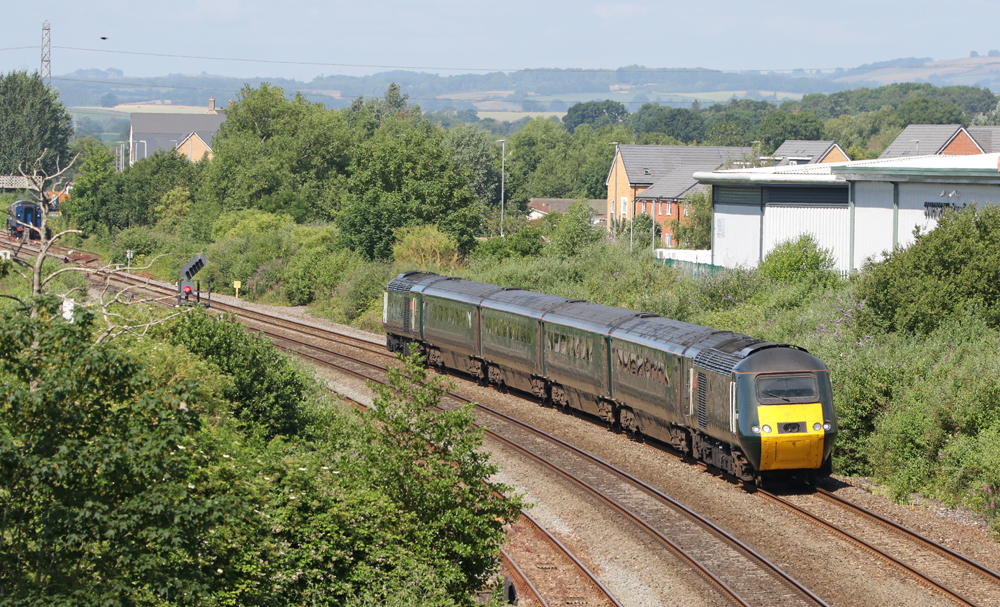
The proposal’s context is the wider state of the UK passenger rail industry. Passenger numbers have bounced back following the COVID-19 pandemic, and on some routes are higher than before COVID. But the move to more flexible working patterns, now widely accepted in the UK, means there are fewer commuters, at least on some days, so season-ticket sales are down. Meanwhile, businesses looking to cut costs amidst high inflation have cut business travel, especially using the most expensive flexible tickets. All of this means that while passenger numbers are high, or even at record levels, the revenue from those travellers is only 70% to 75% of what it was in 2019.
With revenues lower than 2019 and costs higher due to inflation following the pandemic and Russia’s invasion of Ukraine, the main passenger rail operators in England have faced long-running and continued strike action by rail workers seeking wage increases to cope with the increased cost of living.
These strikes have not been called by workers at the few commercial for-profit, “open access” passenger companies, or private rail freight operators, as those companies have cut deals with the unions. And after several strikes, the UK government reached a deal with most workers at national rail infrastructure company Network Rail, which maintains and operates track and signalling systems. Similarly, in Scotland and Wales, the governments have cut deals with the national train operator companies, now owned by their respective governments. However, in England, the government has refused to allow the industry to negotiate on a local or company basis, and the unions have been equally intransigent in refusing to even put proposals to their members.
Disruptions from strikes, which continue this summer, have not improved the industry’s overall revenue. Some observers see the government proposing widespread cuts, including ticket office closures, as the trade-off for continued poor performance. In the last year, multiple contracted train operators have been instructed by the UK Department for Transport to reduce train fleets and in some cases get rid of trains only recently and expensively re-manufactured. In some cases, this is leading to shorter or slower trains replacing better, but sometimes older, ones.
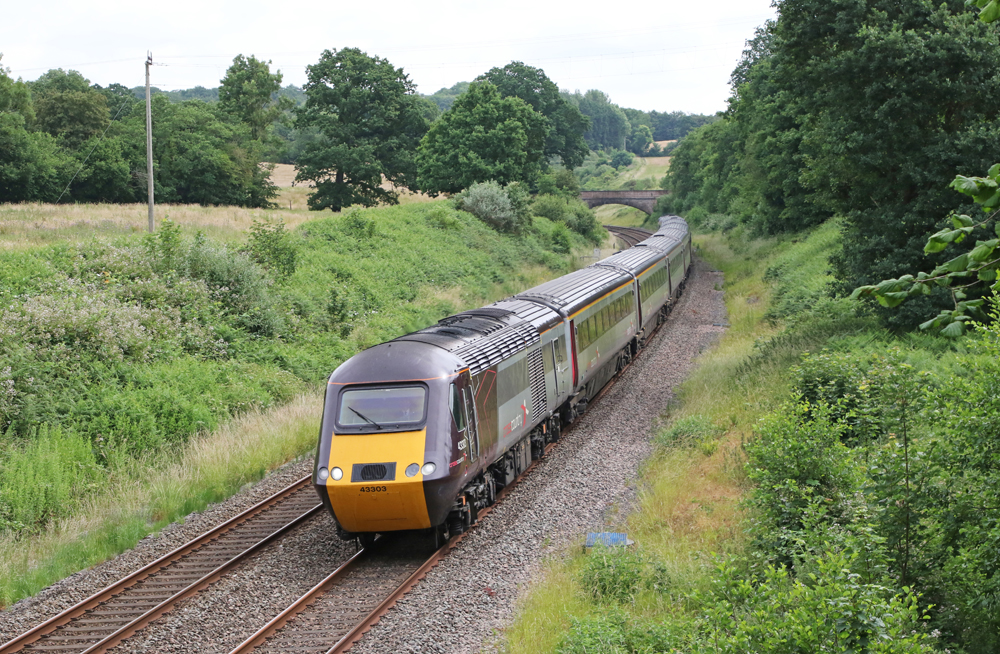
The highest-profile such casualties are the remaining iconic, 125-mph ex-British Rail High Speed Train fleets. Only one operator, Cross Country, still uses the trains at their full length and at the125-mph top speed, but this is slated to end, with all remaining Cross Country HST trains taken out of service by October. A shortened and rebuilt 110-mph version of the HST was introduced by western English train operator Great Western in 2018-19. Following instructions from government officials, these were to be taken out of service by December; a small number have been spared for a year as there are simply not enough replacement trains. The replacement equipment that is available is mostly no newer, and unlike the HSTs, hasn’t been modernized in a decade or more and often has less seats. It is, however, cheaper to lease and uses less fuel, so is expected to reduce the overall government expenditure.
Despite the government’s apparent desire to improve the passenger rail industry [see “British government plans major shake-up …,” Trains News Wire, May 26, 2021], it appears the current focus is purely financial. This has led to proposals that become self-defeating. While the closure of ticket offices is in part justified by the fact many passengers can use their smartphones to buy tickets, the same government department pushing the ticket-office proposal is also reportedly telling train operators to remove wi-fi from trains because it is expensive to maintain. So, in an almost comical situation, a passenger unable to buy a ticket at a station also won’t be able to rely on having a signal on the train to buy the ticket on their phone.






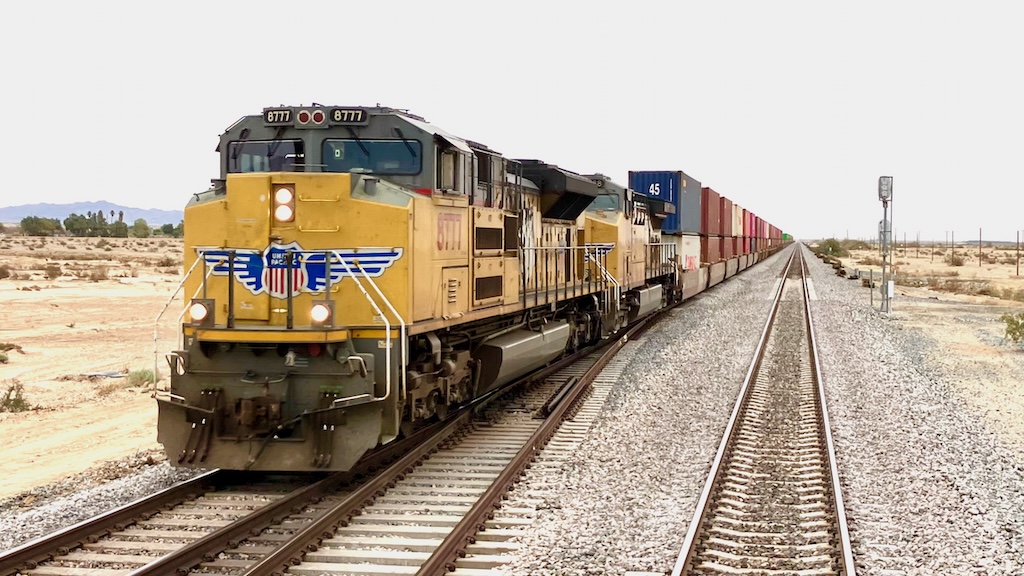

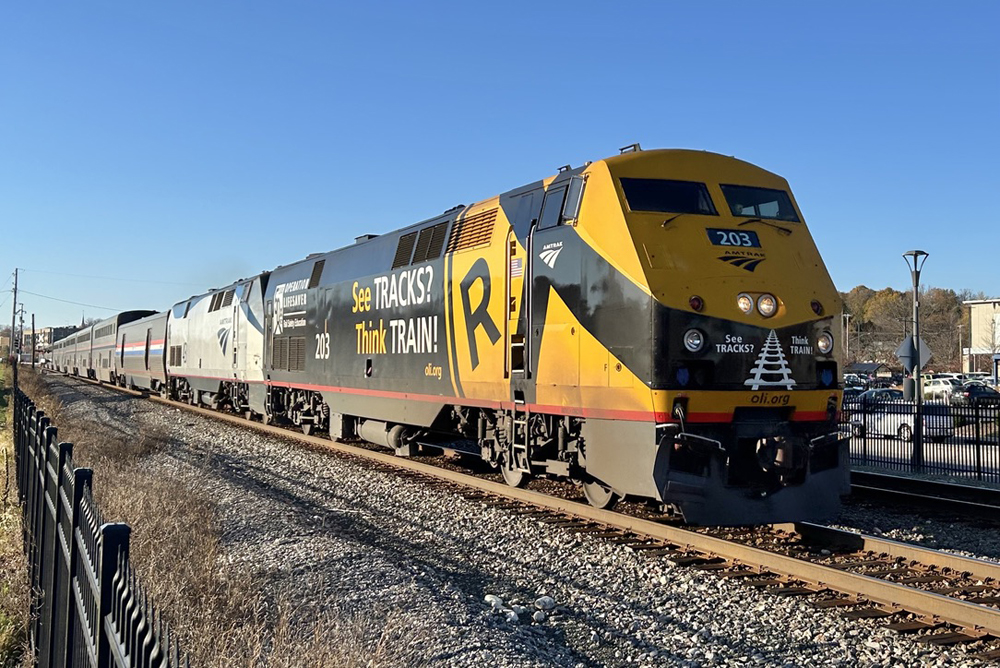
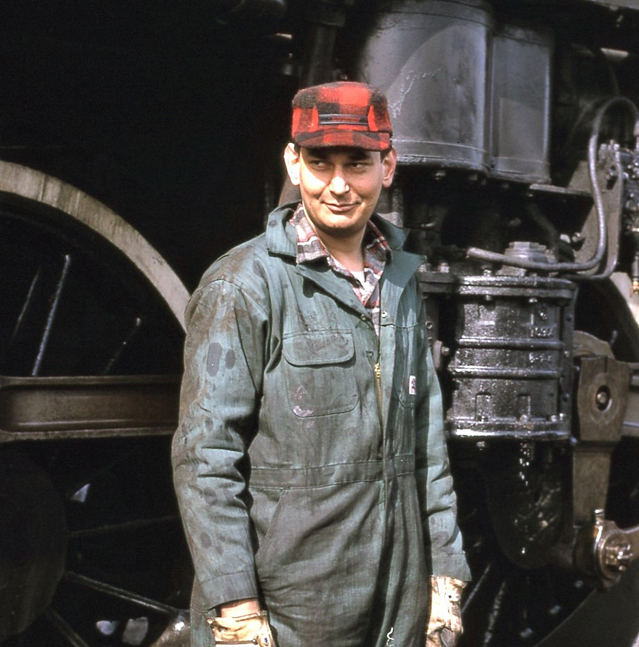




Looks as though just like with Amtrak here in the U.S. the passenger rail system in England is the easy target for politicians.
And doing all through one device leads to easy control of the holder of the device in the near future.
Welcome to the New Age of Technology. Every year more of staffed facilities are disappearing railroad ticket offices as well as the paper ticket itself, post offices banks as well as clerks and staffed checkout counters and cash registers in stores. Eventually even the ATM machines will disappear too since you do all your transactions on either a smartphone or laptop now and no need any more for hard physical cash such as coinage or paper money. The day is coming when all you will need to carry in your pocket is a smart device since the device will be doing everything as well as opening and closing the doors to your home and car. No need to carry plastic such as credit or debit cards either that too is contained in your device. The day will come when all land line phones even the ones in the office will no longer be needed you use your smart device to call on and do business. I say smart device since today the cell phone is no longer just a phone but a device that does everything you need to get along with in this world and has and is replacing everything we carry along in our pocket. Wallets, keys ID cards, credit cards allbeing replace by just one device needed The smart smart phone and device. People will have to learn and get and be tech savvy and smart. No going back to the old ways. The same goes for business and railroads have to modernize and go with the times if they want to survive and be part of the transportation picture today.
Joseph C. Markfelder
Ultimately, it seems like an inevitable practice to happen in England.
Dr. Güntürk Üstün
This is really nothing new. It’s been going on for a few years now throughout the UK and Europe. As mentioned in the article the use of smartphones and computers are playing a large part into the demise of staffed facilities and storefronts mixed in with the need for corporations to make money and of coarse a little greed.
In Scotland many rural banks and even in small cities have had their closed, post offices too, the younger generation does not use any cash and he use of email has resulted in the lack of need to buy stamps and post a letter.
Sta
Let me finish,
Staffed rail facilities in smaller centres in Scotland are also becoming an issue, they have been replaced by ticket machines and again the use of smartphones. The last time I was there, you could also see less agents at staffed stations.
It is happening in North America too, it’s just going to take a little longer to see first hand, in my opinion we are just a little slower to fully adapt to the change.
Tickets? The cost of ticket windows exceeds the cost of fares collected. England is the land of fare jumpers anyway.
A certain number of people will pay fare by apps or whatever, and a certain number of people will board the train which is going to run down the line whether or not they pay the fare. It’s no different that the unstaffed toll plazas in America. Some people breeze through without the EZ-Pass or I-Pass. Some of those get caught by license plate scanner but others don’t. Of those people caught, some will make a payment after the fact and some won’t.